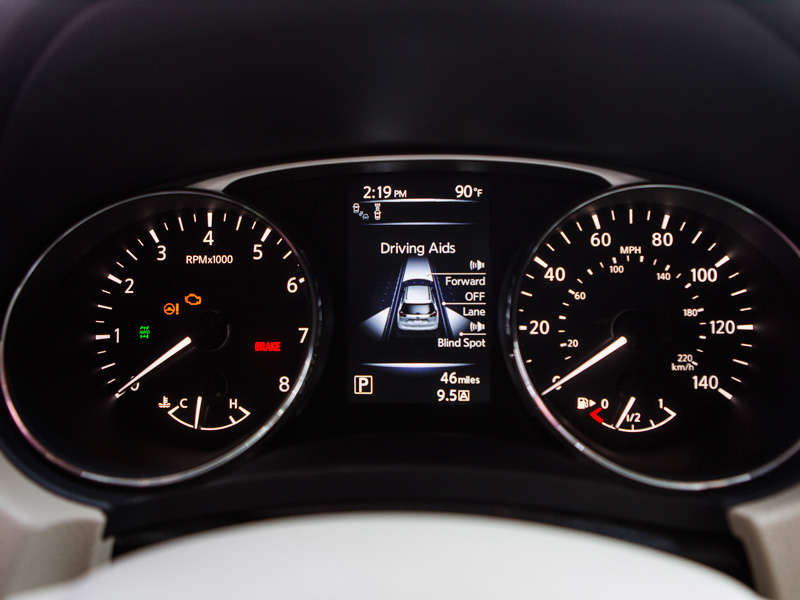Recent Articles
Popular Makes
Body Types
Review: The 2014 Nissan Rogue Is More of the Same - And That's A Good Thing
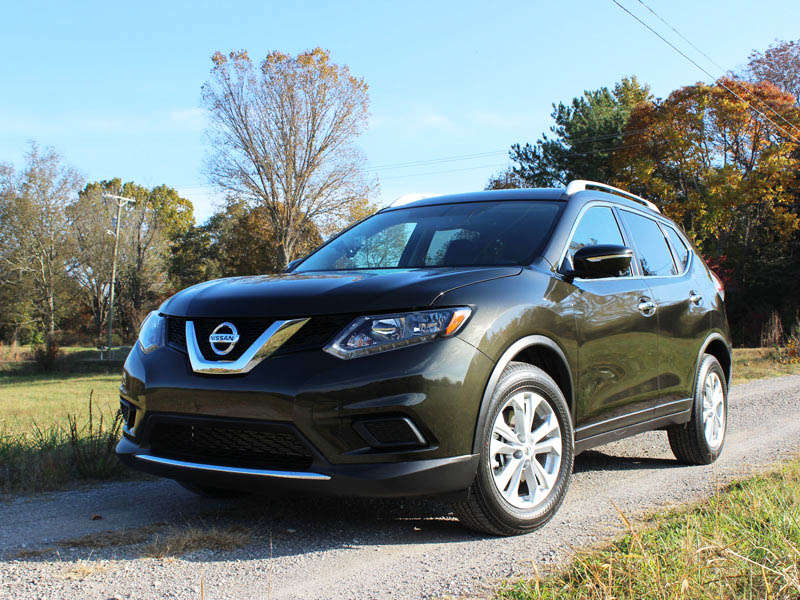
Nissan was dealt a winning hand when it introduced the Rogue sport-utility vehicle in 2007, which shared roots with the lowly Sentra compact sedan but had aspirations of taking on a segment dominated by Toyota and Honda.
The Rogue trundled through mid-life with updates to its exterior styling and its interior content, but otherwise remained the same for the better part of five years: an eternity, in a rapidly changing crossover SUV market.
Now in its second generation, after several years helping to lead Nissan sales in the United States -- company officials claim that the Rogue is the second-best seller in the lineup, as of late -- the 2014 Rogue is looking to expand market share and widen its appeal to growing families.
Autobytel had the chance to put the redesigned Rogue through its paces at a recent media preview in Nashville, which included a route along the Natchez Trace Parkway as well as sloughing through the streets of the Music City.
Exterior: Looks like a miniature Pathfinder
Despite its name, there is nothing roguish about the 2014 Rogue's exterior styling. Soft but masculine lines replace the previous generation's ovoid, jellybean shape, and the Rogue blends neatly in among a crowd of small, crossover SUVs heralded by the Honda CR-V and Toyota RAV4.
The result is an inoffensive mix of design language from popular, existing models — keen eyes will notice more than a hint of outgoing Lexus RX in the Rogue's taillights — that conforms to Nissan's most recent styling strategy.
Its mini-Pathfinder cues hide the fact that the '14 Rogue is virtually the same size as the model it replaces, although its body panels suggest otherwise. A flatter hood, a higher beltline, and a significantly more pronounced front fascia are among the visual tricks that help the Rogue stand up against its chief competitors.
The model tested (shown here) was a midlevel SV model fitted with all-wheel drive, which included alloy wheels and roof rails. The lowest-rung Rogue, the S trim, comes standard with steel wheels. Across the lineup, snazzy LED daytime running lights give the Rogue visual flair from the rearview mirror.
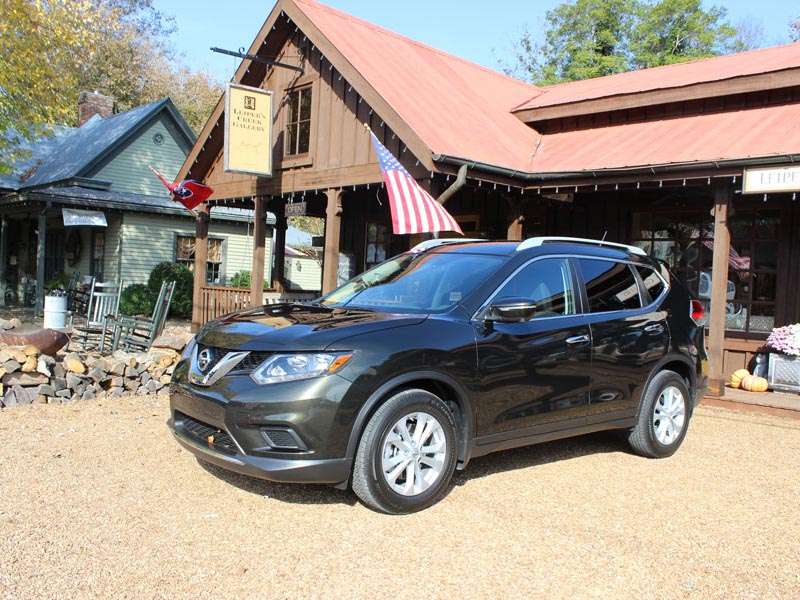
Interior: More creature comforts, and a third row
If the changes to the Rogue's exterior are symbolic of more than an evolution, then the improvements to the interior are tantamount to a sea change. The interior has adopted Nissan and Infiniti's flowing dashboard lines that sweep from the instrument panel to the passenger compartment, adapted smartly to fit the Rogue's more compact dimensions. The Rogue SV tested (not pictured here), which was swathed in black cloth, was a perfectly adequate cockpit.
The Rogue's interior's competitive advantage in the segment is largely based on its feature content, including a standard infotainment screen, rear-view camera, and Bluetooth-based telematics. Uplevel models feature a larger screen for navigation, as well as a suite of safety and collision prevention technology.
Soft-touch plastics cover most touch points on the dashboard and its environs, but some of the trim pieces — including the center console and many touch points aft of the front row — are a reminder that the Rogue is still a sub-$20,000 piece. The saving grace of the interior is Nissan's optional Around View Monitor, which uses a clever set of cameras to display a bird's-eye view around the Rogue. No other SUV in the segment comes close in that regard.
Subsequent to the interior upgrades is the addition of an optional third row of seats, performed with no modifications to the Rogue's length or wheelbase. We're happy to report that they are definitely capable of accommodating passengers under five feet, or so, but will cause acts of needless contortion for adults.
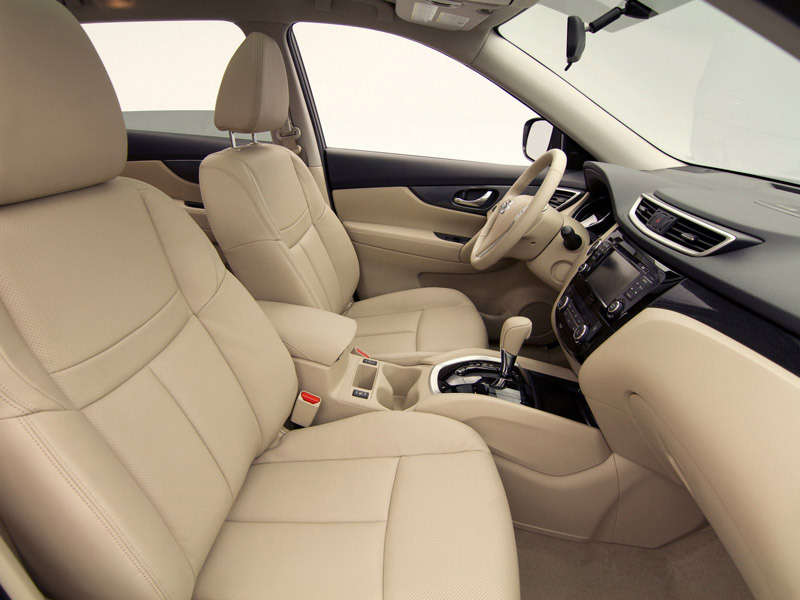
Dynamics: A competent and smooth handler
The skin for the 2014 Rogue is completely new, but the mechanical bits underneath are largely carryovers from the previous model, owing to the durability and flexibility of the previous model's 2.5-liter, four-cylinder engine and continuously variable transmission (CVT). Horsepower remains at 170, and the powertrain provides enough get-up-and-go to motivate the Rogue in city driving and on the highway.
(For OG Rogue die-hards, Nissan will continue to sell the current model as the Rogue Select, at a slight discount, for the foreseeable future.)
It is not an exciting sprint to 60 mph, what with the unending thrum of the CVT as speed builds. The upside to the CVT, which is the only transmission on offer, is a fuel economy rating of 33 highway mpg that exceeds most of its' competitors.
Steering and braking performance have refreshingly natural weight and action, making the Rogue as comfortable to drive as a Honda CR-V, although not as much of a driver's car as the Mazda CX-5. Automatic all-wheel drive keeps torque steer at bay. Where the Rogue excels is in its noticeably smoother ride quality, soaking up bumps and imperfections in situations where its competitors have less refined chassis.
The driving experience is enhanced by standard preventive braking technology, which the manufacturer calls Active Trace Control, that intervenes to keep the Rogue from steering outside of a curve. Luckily, we did not have reason to try out the system during the on-road portion of the drive along the Natchez Trace Parkway outside Nashville.
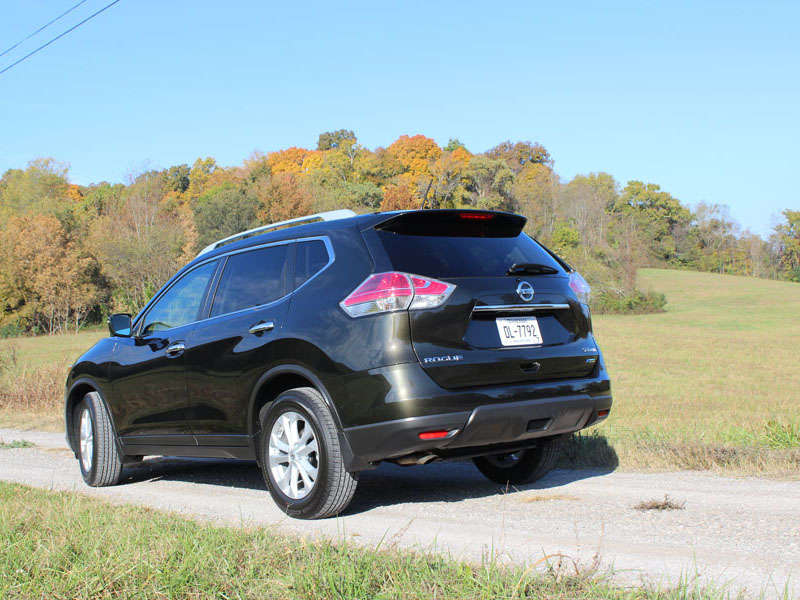
Overall: A small crossover worth lauding
So, if the '14 Rogue is new where it matters, but retains a tried-and-true powertrain, without advancing the small crossover game, is it worth considering?
For growing families, and like-minded buyers for whom style and safety trump power and innovation, the Rogue makes a lot of sense. As the small crossover segment has effectively supplanted the midsize sedan segment, both in ubiquity and utility, there are more choices on the market than ever.
A base, front-wheel drive Rogue will set you back $23,350, while a fully loaded model with all-wheel drive will cost close to $30,000. At that price, Nissan is also happy to steer consumers toward the larger Pathfinder; a mid-level model, somewhere around $27,000, is your best bet in terms of value for money.
